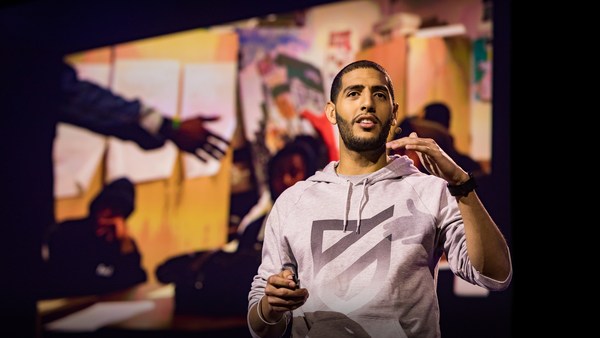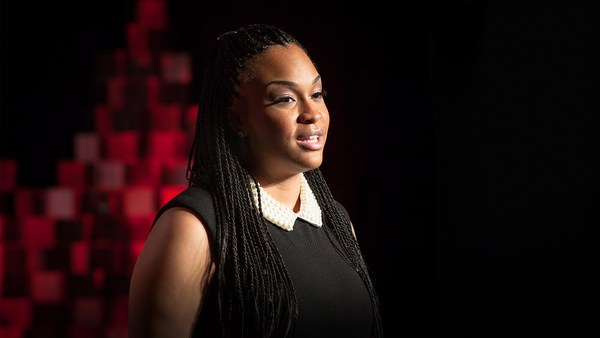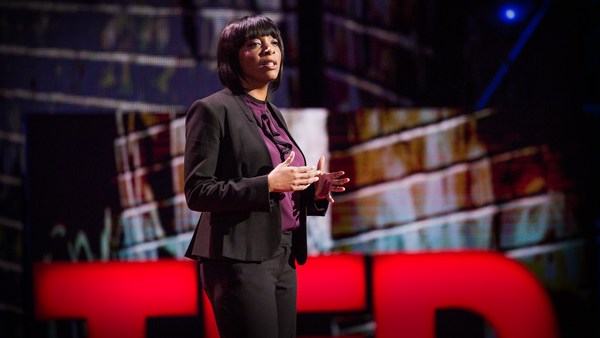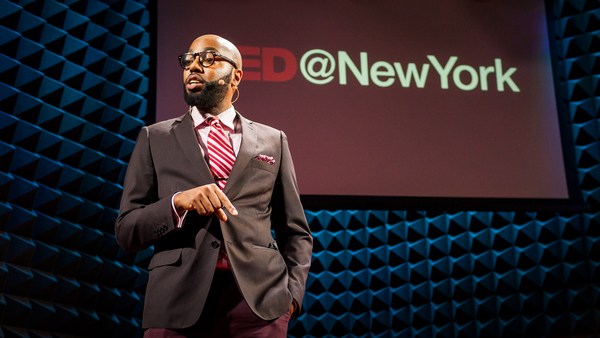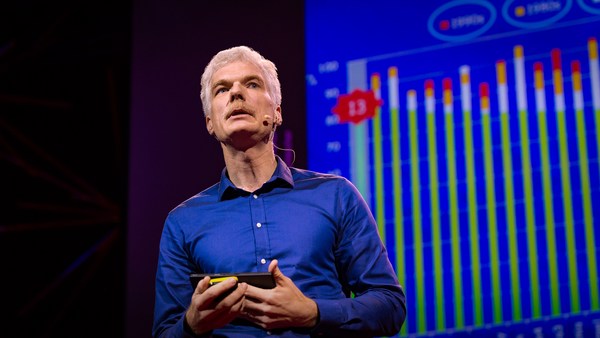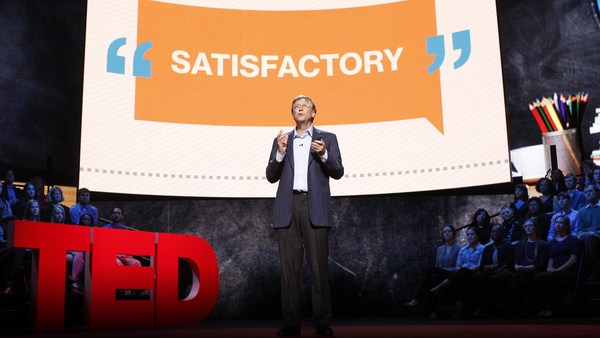I had a chance to teach a summer program a few years back in my hometown of New Orleans. I had a group of 32 young men, age ranging from nine to 14, all Black boys. I wanted to set a tone the first day of class. I want to compare and contrast the mindsets of the contemporary young folk in contrast to my constituents and how we grew up and how we aspired. So I asked them the old cliché question: What do you want to be when you grow up? Here were the responses. Twenty nine said Kevin Durant. Three said LeBron James. Now, I had two thoughts. First was I was flabbergasted because, obviously, these young boys don't know basketball. Because LeBron is the man, if you ask me. But my second thought was, the narrative still hasn't changed. The scope of possibility is still very limited. Sports, streets, entertainment. We don't see ourselves really outside of those arenas. Something has to change.
But my mom was an educator. She laid a very positive foundation for myself and my sister, Charlene, in regards to education. But what she did, most importantly, was she made me a dreamer. She opened up that scope of possibilities, and now I’m the CEO of an organization that recruits Black male teachers. Being a teacher is one of the most impactful ways you can see your impact as a professional. Being a Black male teacher is a game changer. Being a Black male teacher is becoming a superhero. So let's talk about him. Let's take a look at the landscape currently in the United States. Less than three percent of all teachers are Black men. For my liberal arts majors that's three out of 100. (Laughs) Now, Black men are in classrooms as disciplinarians, as janitors, as intervention specialists and definitely as athletic coaches. In front of the classroom, leading from an intellectual capacity, not so much.
But I want to take the first step and juxtapose it to that of another. Just one Black male teacher in third, fourth or fifth grade for a low-income Black boy substantially reduces his chances of dropping out of high school by almost 40 percent. Let that sink in. Just imagine if you had two.
And that's what I do. Kids are what they see. They need that affirmation. So I provide the mirror. We provide the mirror. At Brothers Empowered to Teach, we recruit Black male teachers.
So how do we do what we do? Attachment. We offer a three-year undergraduate fellowship to college-aged Black men. Our criteria are simple. You got to have a 2.5, be enrolled at least half-time in college and obviously be a Black male. The first year, the program is just an observation year, we like to take a gradual, slow approach to teaching. We have an old saying in New Orleans: “You can’t microwave gumbo.” You've got to slow-cook it. And that's the approach we take with teachers. Year one is a simple observation, you may lead homework activities, recreational activities for 10 or 12 hours a week. Year two and three are your lab development years where you learn the pedagogy, classroom management, shadowing teachers, lesson planning, things of that nature. It all culminates in placement into the classroom. But the really special sauce of our program is our internal, personal and professional development, the Cipher series. The Cipher series is where young men get a chance to break down and dissect, sort of recalibrate their compasses, if you will, in regards to being a Black man in this world today, but also being a Black man in education. Our topics of discourse range from masculinity, résumés, networking, relationships, you name it.
See what we’re trying to do is really push this envelope in regards to attachment. We take a holistic approach to education. We develop good people. And then in turn they manifest into great educators, people over pedigrees, dispositions over degrees. I think about our first fellow, Alex Halstead. Dillard University attendee, arbitrary major. Like a lot of our young Black men, walking around Dillard’s campus, not much direction. Creative writing major, didn't have a plan, was told to go to school like a lot of us was told to go to school because it's the right thing to say from your parents. Alex had no true direction. Alex came to our program, we put Alex in front of the kids. He became a mirror, but also they became a mirror for him as well. See, it’s a double reflection when Black kids see a Black male and then a Black male sees a Black kid. They reflect for themselves, and that's what we do. We create the connection to the classroom for a demographic and a group that hasn't been represented as far as education as long as I can remember. They were removed from the conversation from an intellectual standpoint as students, but also as teachers.
As I think about it, man, I think three, five, 10 years from now, if we circle back to the conversation about what do you want to be, and I pose that question again to my young boys, maybe we can add a couple of names to those lists. Maybe we can say Kevin Durant, LeBron James and also Mr. Halstead, and maybe even Mr. Irving. Yeah. Mr. Irving. I like the ring of that. Thank you.
